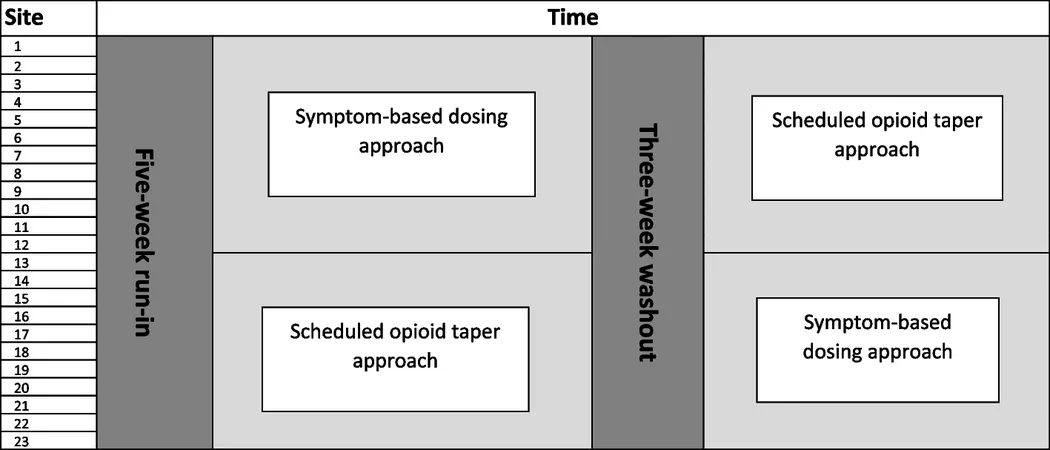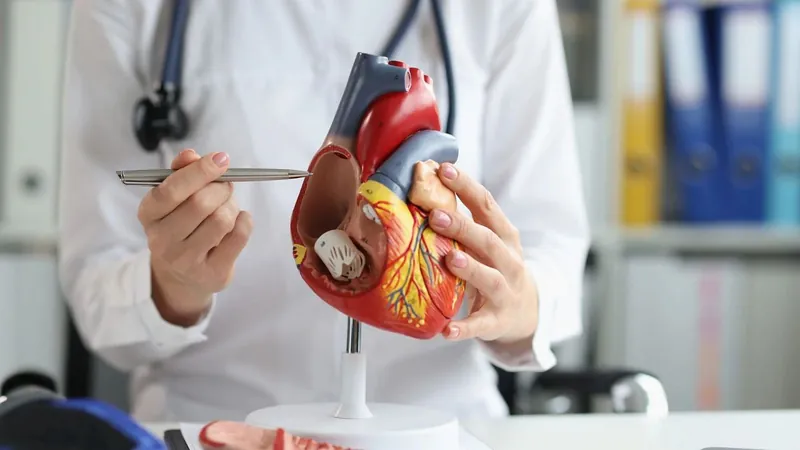
Revolutionizing Neonatal Opioid Withdrawal Treatment: A Bold New Study Approach
2025-08-27
Author: Jacob
Background on Neonatal Opioid Withdrawal Syndrome (NOWS) and Its Challenges
Neonatal Opioid Withdrawal Syndrome (NOWS) occurs when newborns are exposed to opioids in utero, leading to a range of withdrawal symptoms. These symptoms can affect the central nervous, autonomic, and gastrointestinal systems—manifesting as irritability, tremors, feeding difficulties, and more. As opioids leave the infant’s system, symptoms initially surge before gradually improving. Effective treatment focuses first on easing withdrawal symptoms to promote healthy growth and bonding between mother and infant.
Innovative Treatment Approaches Under Scrutiny
Traditionally, treating NOWS involves escalating opioid doses until symptoms are manageable, followed by a gradual tapering process. While effective, this method can prolong hospital stays and increase risks for developmental challenges. Recently, a more flexible symptom-based dosing approach has emerged, where infants receive small amounts of opioids as needed rather than a strict tapering schedule. Preliminary data suggests this can reduce medication exposure without worsening conditions.
Exciting New Study to Compare Treatment Strategies
To validate the efficacy of this new approach, a multi-center study dubbed OPTimize NOW will be conducted. This groundbreaking research will compare symptom-based dosing against the conventional scheduled tapering method, assessing the overall impact on hospital discharge times and infant development.
Study Design and Goals
This study will follow a cluster crossover design involving various hospitals across the United States. Over a series of months, participating hospitals will switch between treatment methods, allowing for a direct comparison of outcomes. Researchers aim to see if the symptom-based approach can lead to quicker discharges from the hospital without compromising infant safety.
Potential Benefits and Future Implications
The results from this study could revolutionize how NOWS is treated, promising to minimize opioid exposure and improve overall outcomes for infants. If successful, this could set a new standard for neonatal care, encouraging hospitals to adopt more nuanced, patient-driven treatment strategies.
Call to Action for Medical Facilities
As this innovative study unfolds, medical facilities are encouraged to stay informed and consider how emerging data may influence their practices. The potential for improved treatment protocols could greatly enhance the care provided to infants facing the challenges of NOWS, leading to healthier beginnings.









 Brasil (PT)
Brasil (PT)
 Canada (EN)
Canada (EN)
 Chile (ES)
Chile (ES)
 Česko (CS)
Česko (CS)
 대한민국 (KO)
대한민국 (KO)
 España (ES)
España (ES)
 France (FR)
France (FR)
 Hong Kong (EN)
Hong Kong (EN)
 Italia (IT)
Italia (IT)
 日本 (JA)
日本 (JA)
 Magyarország (HU)
Magyarország (HU)
 Norge (NO)
Norge (NO)
 Polska (PL)
Polska (PL)
 Schweiz (DE)
Schweiz (DE)
 Singapore (EN)
Singapore (EN)
 Sverige (SV)
Sverige (SV)
 Suomi (FI)
Suomi (FI)
 Türkiye (TR)
Türkiye (TR)
 الإمارات العربية المتحدة (AR)
الإمارات العربية المتحدة (AR)